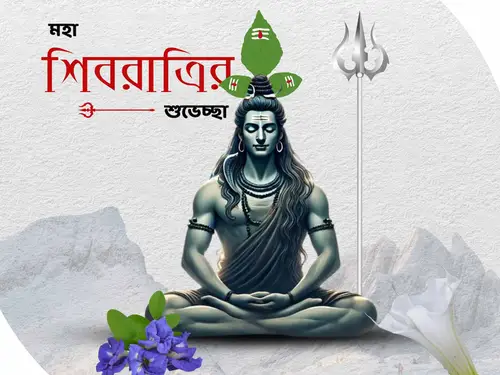
Origin and significance of Shivratri – The Great Night of Shiva
By Meenakshi G on February 5, 2025
Maha Shivratri, translating to “The Great Night of Shiva,” is a significant Hindu festival dedicated to Lord Shiva. Celebrated annually, it holds profound spiritual importance for devotees.
Origins of Maha Shivratri
The origins of Maha Shivratri are rooted in ancient Hindu traditions and texts. The festival is mentioned in several Puranas, including the Skanda Purana, Linga Purana, and Padma Purana, which date back to the 5th century BCE. These texts highlight the significance of fasting and offering reverence to the Shiva lingam on this auspicious night.
Various legends explain the significance of Maha Shivratri:
- Divine Dance of Shiva: One legend describes this night as when Lord Shiva performed the Tandava, a cosmic dance symbolizing creation, preservation, and destruction.
- Marriage to Parvati: Another belief is that Maha Shivratri marks the divine marriage of Lord Shiva and Goddess Parvati, representing the union of consciousness and energy.
- Consumption of Halahala Poison: It is also believed that on this night, during the churning of the ocean (Samudra Manthan), Shiva consumed the deadly Halahala poison to save the world, holding it in his throat, which turned blue, earning him the name Neelkanth.
Significance of Maha Shivratri
Maha Shivratri holds deep spiritual significance for devotees:
- Spiritual Awakening: The festival is seen as an opportunity for introspection and spiritual growth. Observing fasts and engaging in meditation are believed to aid in overcoming darkness and ignorance.
- Union of Energies: The marriage of Shiva and Parvati symbolizes the harmonious balance between masculine and feminine energies, emphasizing the importance of balance in the universe.
- Devotional Practices: Devotees engage in various rituals such as fasting, night-long vigils, and chanting of hymns to honor Lord Shiva and seek his blessings.
Rituals and Observances
The observance of Maha Shivratri includes several key rituals:
- Fasting (Vrat): Devotees observe a strict fast, abstaining from food and sometimes water, to purify the body and mind. Some may consume only fruits and milk during the day.
- Night Vigil (Jagaran): Staying awake throughout the night, devotees chant hymns and meditate, seeking spiritual growth and enlightenment.
- Worship (Puja): Offerings of fruits, leaves, sweets, and milk are made to Shiva, with the chanting of mantras like “Om Namah Shivaya.”
Regional Celebrations
Maha Shivratri is celebrated across India and in various parts of the world with regional variations:
- Nepal: In Nepal, devotees visit the Pashupatinath Temple in Kathmandu, where grand celebrations take place, including rituals, fairs, and cultural performances.
- India: In India, major Shiva temples like those in Varanasi, Ujjain, and Chidambaram witness large gatherings of devotees who participate in elaborate rituals and ceremonies.
Conclusion
Maha Shivratri offers devotees an opportunity to deepen their spiritual practice, seek inner peace, and honor the transformative power of Lord Shiva. Through dedicated rituals and sincere devotion, individuals aim to transcend ignorance and connect with the divine consciousness.